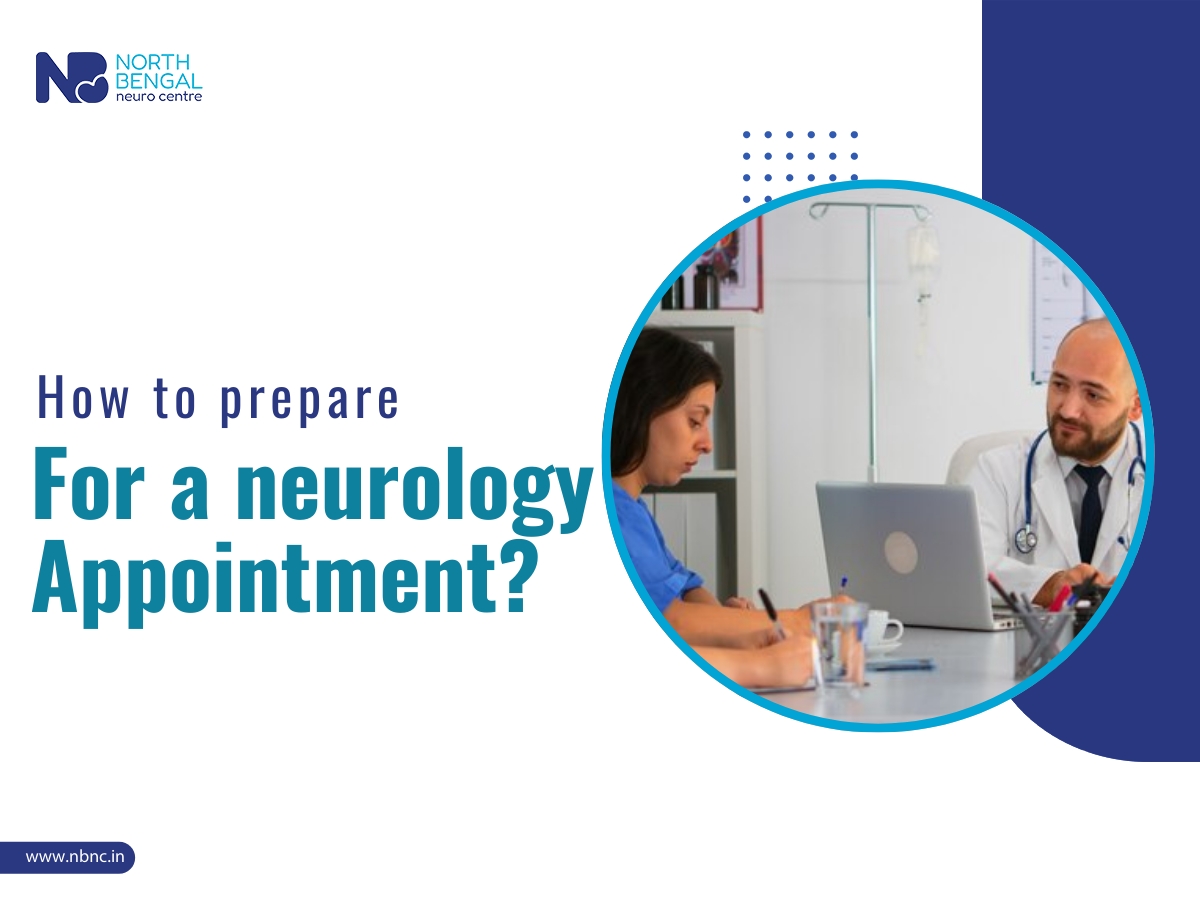It can be extremely unsettling to watch someone having a seizure. While most seizures end safely on their own, there are situations in which prompt assistance is key. Fast care can save lives to know how to recognize the warning signs of a seizure emergency, how you can react, and when to seek professional medical help.
This blog will explain what to look out for, what to do, and how to maintain composure in such circumstances. You might speak with the best nerve doctor in Siliguri at North Bengal Neuro Centre or near you.
Overview of Seizures
When abnormal, uncontrollable electrical activity affects all or a portion of the brain, a seizure takes place. This occurs due to a momentary loss of consciousness (such as "blanking out"), leading to jerky movements, stiffness, or other behavioral or perceptual changes in the person.
The duration of a seizure might range from a few seconds to many minutes. Individual differences might be seen in the type of seizure and what causes it.
Identifying a Seizure in process
The following are possible signs that someone is suffering a seizure:
-
Loss of awareness: The person may cease reacting or seem "out of it."
-
Muscle stiffening or jerking: Particularly during a tonic-clonic (grand mal) seizure, muscles may tense or jerk, causing a rigid body, falling, and then rhythmic jerks.
-
Sudden loss of muscular tone: Abnormal collapse or droop due to a loss of muscular tone (atonic seizure).
-
Strange behaviours: Odd behaviors include chewing, walking, lip-smacking, and looking blankly.
-
Unusual behavior: Involuntary twitching, rolling of the eyes, and arm or leg motions.
-
Following the seizure: disorientation, sleepiness, headache, painful muscles, and maybe forgetfulness.
Even though witnessing a seizure can be frightening, not all seizures call for an ambulance.
A Quick Overview of Its Phases
A more thorough layering of what you would see is shown here:
-
Prodrome/Aura phase: Prior to the seizure, a person may have strange emotions, mood swings, or strange sensations.
-
Ictal phase (the main seizure): The visible or observable event is caused by aberrant electrical activity during the ictal phase, also known as the major seizure. Shaking, movements, loss of consciousness, etc., are common here.
-
Postictal phase (after the seizure): The patient is recuperating; they can be drowsy, disoriented, or react slowly.
What are the Possible Reasons?
Seizures can have a variety of causes, such as:
-
Epilepsy, a long-term disorder that causes frequent seizures
-
Head trauma
-
Elevated fever, particularly in children
-
Low blood sugar levels
-
Infections of the brain
-
Drug withdrawal or specific meds
The appearance and severity of seizures vary greatly. While some people may lose consciousness, fall, or shake violently, others may have fleeting periods of disorientation. Hence, identifying when it's time to seek emergency assistance requires an understanding of these variations.
Know the Common Types of Seizures & Symptoms
You need to understand that not every seizure has the same appearance, and the two primary categories and possible outcomes are as follows:
1.Generalized Seizures
These can result in the following and impact both sides of the brain:
-
Sudden unconsciousness
-
Shaking or stiffness over the entire body (tonic-clonic seizures)
-
Unexpected collapses or falls
-
Twitches or jerks in the muscles
2.Focal (Partial) Seizures
These begin in a single area of the brain and can take many distinct forms:
-
Confusion or gazing into space
-
Repetitive motions, such as blinking or chewing
-
Strange feelings of tingling, terror, or déjà vu
-
Momentary incapacity to react
Generalized seizures can develop from focal seizures that spread throughout the entire brain.
How to Tell If a Seizure Is an Emergency
The majority of seizures don't need hospitalization. And they end in a matter of minutes. Some cases, nonetheless, are genuine medical emergencies. By being aware of these warning signs, you can take prompt action and possibly save someone's life.
When should you dial your local emergency number to contact emergency services?
- The Seizure is Longer Than Five Minutes
Status epilepticus is the term for a seizure lasting more than five minutes. If treatment is delayed, this illness may result in brain damage. Call for emergency assistance immediately if a seizure does not stop after five minutes or if another seizure occurs without full recovery. You might consult one of the top neurologists in your location without any delay.
-
The Person Has Trouble Breathing or Turns Blue
Breathing usually returns to normal after a seizure, so get medical help right away if the person stops breathing, turns blue, or appears to have trouble breathing.
-
The Person Has Multiple Seizures in a Row
It is also an emergency if seizures occur repeatedly without a break in between. Seizures that don't stop can deprive the brain of oxygen.
-
It’s the Person’s First Seizure
Getting a medical assessment is crucial if someone has never experienced a seizure. Did you know that this might indicate a major underlying issue like a stroke, infection, or head injury as well? Thus, medical diagnosis is vital.
-
The Water-Related Seizure
Call emergency services right away if someone experiences a seizure while bathing or swimming, even if they seem fine afterward. This may occur if they have oxygen deprivation or inhaled water.
-
The Person Is Injured During the Seizure
Seizures may result in burns, falls, or head trauma. Medical attention is necessary for any apparent injury, particularly bleeding or head injuries.
-
The Person Has Other Health Issues
A seizure may be more dangerous if the person has heart disease, diabetes, or is pregnant. These circumstances should always be handled as emergencies.
The Person Does Not Regain Awareness
After the seizure ends, call for assistance if the person is still unconscious, disoriented, or unresponsive for longer than a few minutes. Seeing the best nerve doctor in Siliguri or near you is important.
It needs maintaining composure, moving quickly, and ensuring someone's safety. To save a life, you don't have to be a doctor; all you need to do is know what to do so that you can help that person. Seek guidance from a doctor.





